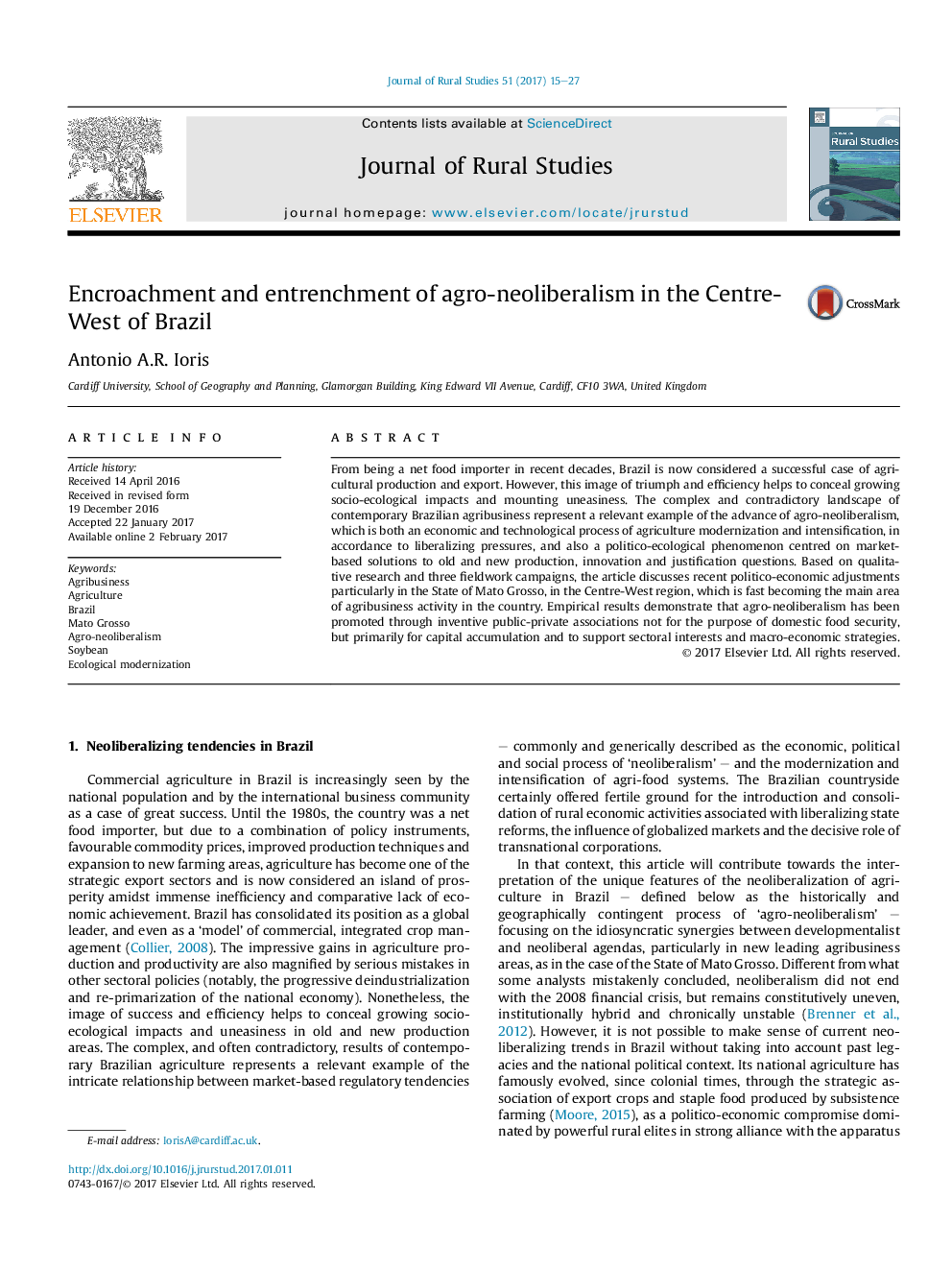| کد مقاله | کد نشریه | سال انتشار | مقاله انگلیسی | نسخه تمام متن |
|---|---|---|---|---|
| 6460114 | 1421780 | 2017 | 13 صفحه PDF | دانلود رایگان |
- Brazilian agribusiness is seen as a case of great success, but production and productivity gains conceal growing socio-ecological tensions.
- The Brazilian government and wider business community have become highly dependent on the export of primary commodities.
- Agro-neoliberalism is both a process of economic and technological intensification and also a politico-ecological phenomenon.
- The analysis of agro-neoliberalism needs to connect changes at the local and farm level with national and international trends.
- Agribusiness in Mato Grosso, in central Brazil, reveals a great about the achievements and contradictions of agro-neoliberalism.
From being a net food importer in recent decades, Brazil is now considered a successful case of agricultural production and export. However, this image of triumph and efficiency helps to conceal growing socio-ecological impacts and mounting uneasiness. The complex and contradictory landscape of contemporary Brazilian agribusiness represent a relevant example of the advance of agro-neoliberalism, which is both an economic and technological process of agriculture modernization and intensification, in accordance to liberalizing pressures, and also a politico-ecological phenomenon centred on market-based solutions to old and new production, innovation and justification questions. Based on qualitative research and three fieldwork campaigns, the article discusses recent politico-economic adjustments particularly in the State of Mato Grosso, in the Centre-West region, which is fast becoming the main area of agribusiness activity in the country. Empirical results demonstrate that agro-neoliberalism has been promoted through inventive public-private associations not for the purpose of domestic food security, but primarily for capital accumulation and to support sectoral interests and macro-economic strategies.
Journal: Journal of Rural Studies - Volume 51, April 2017, Pages 15-27
